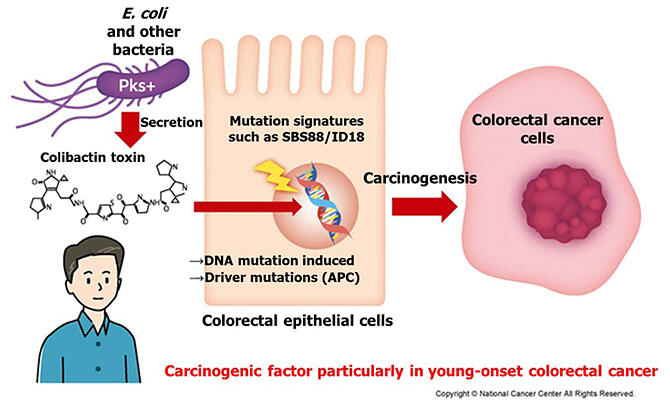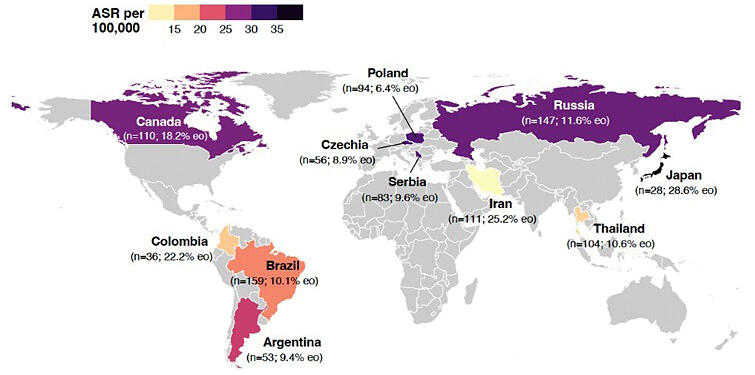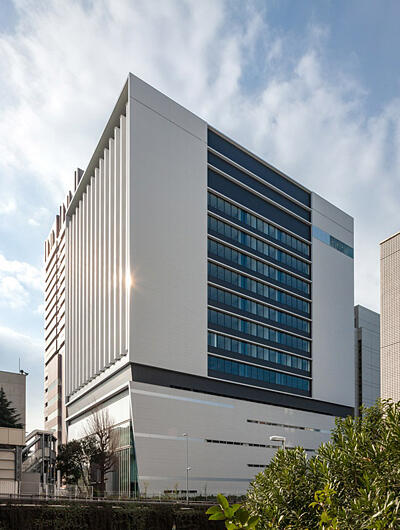An international collaborative study has revealed that 50% of Japanese colorectal cancer patients have unique genome (complete genetic code) mutations caused by toxins secreted by certain gut bacteria, according to an announcement by the National Cancer Center. These findings come from genome analysis of colorectal cancer in 11 countries worldwide. The Center suggests these bacteria may be involved in the increasing incidence of colorectal cancer among younger populations.
Professor Tatsuhiro Shibata, Chief of the Division of Cancer Genomics of the National Cancer Center Research Institute, and his colleagues participated in an international collaborative study with the University of California San Diego of the United States, the Wellcome Sanger Institute in the UK, and the World Health Organization (WHO) International Agency for Research on Cancer. They analyzed the genomes of 981 colorectal cancer patients from 11 countries, including 28 Japanese patients, to investigate mutation patterns that cause cancer development.
The results showed that a specific mutation pattern involving a secretion called "colibactin toxin" produced by certain gut bacteria such as E. coli was found in 50% of Japanese patients. This rate was 2.6 times higher than the average in the other countries. The research group believes this toxin damages DNA by breaking double strands in colon cells, causing mutations that lead to cancer development.
Additionally, toxin-related mutations were more common in patients under 50 years old - 3.3 times more frequent than in elderly patients over 70 - suggesting a strong association with colorectal cancer development in younger populations. Many cases showed no detection of toxin-secreting gut bacteria in patients, indicating they may have been exposed to the toxin previously and developed cancer after a considerable time period.

Provided by the National Cancer Center

Provided by the National Cancer Center
Colorectal cancer is a general term for cancers (malignant tumors) that develop in the colon or rectum. In Japan, there is an increasing trend, with over 140,000 people affected in 2020 - the highest number among all cancers - and over 53,000 deaths in 2023. Incidence among the younger population is also increasing annually, with more cases in men than women. Risk factors include smoking, drinking, Western-style diet, and obesity. Early stages are often asymptomatic, and many cases are discovered as advanced cancer with symptoms like bloody stools and abdominal pain. Japan has one of the highest patient numbers globally, ranking third worldwide for those over 50, making colorectal cancer prevention a cornerstone of cancer control policy.
Gut bacteria are said to be made up of hundreds of species, with over 100 trillion organisms in a single person's intestines, and a total weight of 1-2 kilograms. While they have important functions in digestion, immunity, and vitamin synthesis, some bacteria are known to be involved in the development and malignancy of colorectal cancer.
Shibata and his colleagues at the National Cancer Center plan to clarify the full picture of colorectal cancer in young Japanese people going forward. If methods can be developed to interfere with toxin function or selectively remove related gut bacteria, this is expected to lead to colorectal cancer prevention. The research results were published in the British scientific journal Nature on April 23 and announced by the Center on May 21.

Provided by the National Cancer Center
Original article was provided by the Science Portal and has been translated by Science Japan.




